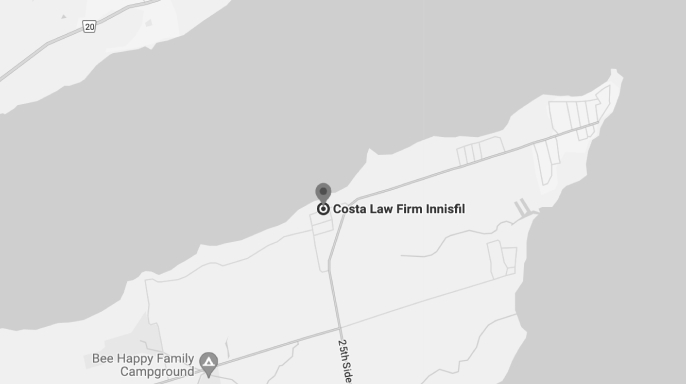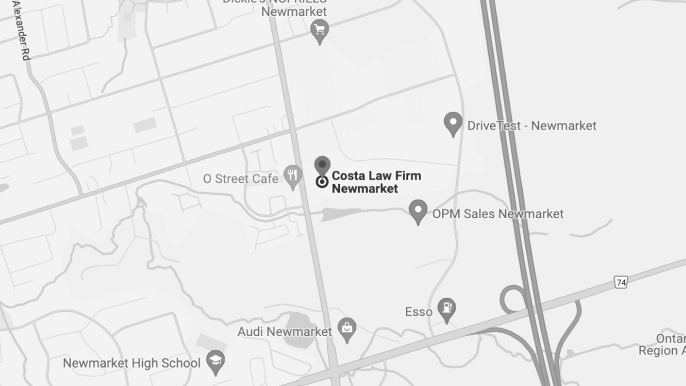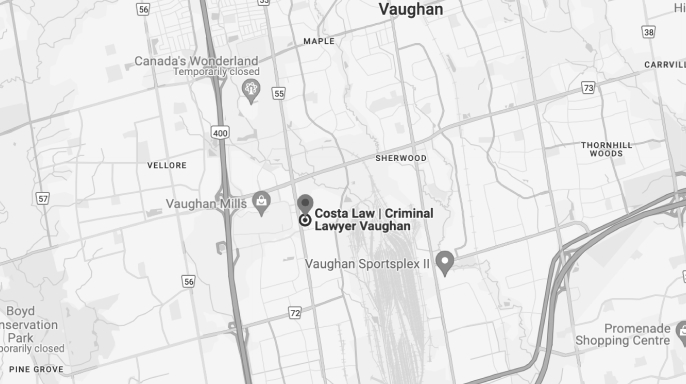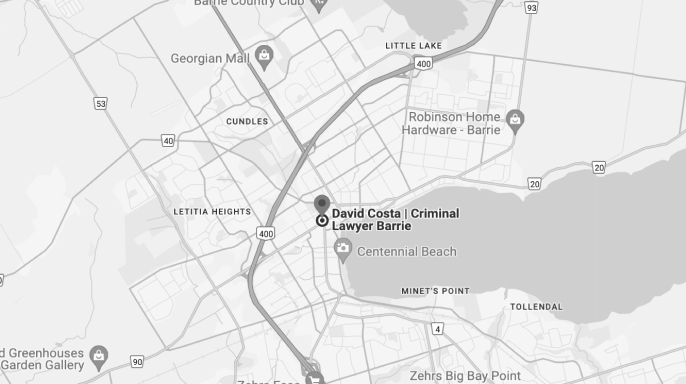You can count on us for legal representation
What’s Criminal Harassment?
Criminal harassment is also known as stalking, and the Criminal Code classifies it as an offence against the individual and reputation. The criminal justice system explains that the behaviour that makes the alleged victim fear for his or her safety must happen more than once to be considered criminal harassment unless it is overly threatening or prohibited conduct.
According to Section 264 of the Criminal Code, a person shall, without lawful authority, not cause the other person to reasonably fear for their safety or the safety of people known to them. It’s also a criminal offence to engage in the conduct referred to knowingly and recklessly cause reasonable fear in a person or anyone known to them.
This prohibited conduct consists of repeatedly following the person or anyone known to them from place to place. Repeatedly communicating with the complainant directly or indirectly and engaging in any form of threatening conduct directed to the complainant can also be considered criminal harassment.
Note that criminal harassment is a broad offence category that covers activity from incessantly contacting the person or anyone known to them to threatening them directly or indirectly. Also, behaviours involving watching the victim’s residence, workplace, or business premises may constitute criminal harassment.
What to do if Accused of Criminal Harassment
If accused of criminal harassment, it’s crucial to seek legal counsel immediately. The lawyers at Costa Law understand the complexities of such charges and are dedicated to providing experienced representation. Once arrested for harassment, you may be released on the scene on a release order. The police will give you a ‘Promise to Appear’ document detailing charges and conditions.
However, a bail hearing may be necessary, especially if this isn’t your first offence or you are facing serious charges. The hearing, typically within 24 hours of arrest, determines your release conditions. Our skilled lawyers will assess your case carefully and plan an effective defence strategy. We prioritize your rights and work tirelessly to navigate legal proceedings on your behalf.
During this hearing, we advocate for fair treatment and favourable conditions. Trust in our competence to protect your interests and ensure your rights are protected. Our commitment to your defence extends beyond the courtroom. We offer legal support and guidance. If you are facing allegations of criminal harassment, do not hesitate to contact us.
Defending you Against Criminal Harassment Charges in Toronto
At Costa Law, we understand that the most effective defence for any criminal harassment charge depends on the unique circumstances of the case. That’s why we first focus on understanding the client’s charges, investigating the threatening conduct referred to as harassment, and creating a defence strategy tailored to your case. Here are some of the defence options we may consider.
Identity
Suppose the repeated behaviour being described as criminal harassment wasn’t recorded by surveillance equipment or the available footage is of poor quality. Our lawyers can raise an identity defence successfully. For instance, we could argue that law enforcement made a mistake in identifying you as the offender based on the poor quality of the footage.
However, you will need credible collaborative evidence to strengthen the identity defence strategy. For instance, you could provide an alibi for where you were when the threatening or violent behaviour was happening.
Factual Innocence
Factual innocence is often the strongest defence against criminal harassment charges. Our lawyers will investigate all incidences being considered harassment and uncover all pieces of evidence or information that could support your factual innocence.
If the evidence and facts don’t place you anywhere near the victim’s dwelling house and don’t show you repeatedly communicating with the complainant, we can show that you are not guilty. Also, we can use facts to show you didn’t use a restricted weapon to threaten them or engage in any behaviour considered harassment. This can weaken the prosecutor’s case against you and probably get the charges against you dropped.
Unreasonable Fear
For any action to be considered criminal harassment, the complainant must have felt reasonable fear due to the accused person’s conduct. One possible defence for charges involving criminal harassment is to challenge the complainant’s fear and show that it wasn’t reasonable.
For instance, we can point to any relationship with the victim and with nature. Similarly, we can use the context and history of your communications and show that the complainant’s fears were not reasonable. Thus, there may be no reasonable grounds to be accused of harassment.
No Intent to Cause Fear
Depending on all the circumstances of your case, our lawyers may be able to prove that you were not aware that your conduct would cause the victim to fear for their safety. Therefore, you didn’t plan or intend to cause the fear. However, there must be information that shows you didn’t know that your behaviour would lead to fear.
This defence may fail in offences with an aggravating factor, like using a restricted firearm to cause fear to the victim without a lawful reason.
Lawful Authority
Suppose you had a lawful authority to harass an individual; you can’t be convicted of the alleged criminal harassment. For example, a debt collector calling an individual incessantly to get the owed funds isn’t a criminal offence. The debtor has a lawful authority to obtain the owed money. However, the debtor doesn’t have the lawful authority to use a prohibited firearm to engage in any threatening conduct directed at the victim.
Our lawyers will investigate every allegation leading to your arrest. We will uncover any form of violation of your constitutional rights (if it happened). Remember, Canada’s Charter of Rights & Freedoms highlights your rights before, during, and after your arrest. If any of your rights were violated, we could use that information to strengthen your defence strategy.
To be convicted of charges involving criminal harassment, the prosecutor must prove beyond reasonable doubt that the accused knew their conduct (harassment) would cause reasonable fear to the victim or people they know. While the prosecutor must prove all elements of a criminal offence beyond a reasonable doubt, you (the accused person) bear some responsibility to raise the defence at trial. Our lawyers can help.
The availability and strength of your defence strategy will depend on your personal circumstances and the facts of your case. Our skilled lawyers have many years of experience assessing various cases and available evidence. We will use all legal means to protect your rights and get the best possible outcome.
Even if you are considering a guilty plea, it’s important that you understand that criminal harassment is an offence punishable by summary conviction. You may face imprisonment for a term and probably face a prohibition order. Therefore, it’s in your best interest to consult our lawyers to guide you and protect your rights.
Penalties for Criminal Harassment
According to the Criminal Code, criminal harassment is classified as a hybrid offence. That means the prosecutor can proceed summarily or by way of indictment. The Crown’s choice will affect the maximum punishment that the offender is given.
Criminal harassment is an indictable offence that carries up to ten years imprisonment. A summary conviction carries a maximum of two years imprisonment less than a day and up to a $5,000 fine. Beyond the immediate penalties, a conviction can have far-reaching negative consequences on your personal and professional life.
For instance, a conviction means you will have a stained criminal record that may make it challenging to secure employment. This is particularly true if you intend to pursue roles that require working with the elderly, children, and other vulnerable people in society. Furthermore, the lifelong criminal record associated with a conviction may make it hard for you to travel.
Therefore, even when you (the accused person) are ready to accept responsibility for harassment, it’s worthwhile to consult our lawyers. Depending on the severity of your crime, we can help you explore legal options like a peace bond that may help you avoid jail and other harsh penalties.
Sometimes, it’s possible to mount a defence strategy that results in no criminal record. Remember, it all depends on the nature of the charges against you and the evidence presented. It’s even possible to obtain a community-based sentence even when the prosecutor is seeking jail time.
Need a Criminal Harassment Lawyer?
If you are facing a charge of criminal harassment, an experienced lawyer can help defend you against these charges. Rest assured, our lawyers will defend you aggressively so that you’re not saddled with the penalties and stained criminal record that stem from a criminal conviction of harassment.
FREE Case Evaluation
or Call Us: (416) 535-6329
What our clients are saying
Testimonials
Contact Us
FREE Case Evaluation
or Call Us: (416) 535-6329
Costa Law Firm
Costa Law Firm is a law firm located in Toronto with exceptional credentials that stands out for its commitment to client service. Our service minded approach has led Costa Law Firm to be one of the most reliable law firms in Toronto.
Address
Main Office:
1015 Bloor Street West, Toronto, Ontario M6H 1M1
Phone: (416) 535-6329
Fax: 416-535-4735
info@costalawfirm.ca
We provide emergency services for urgent matters.
Consultation Office:
17075 Leslie St Unit 6, Newmarket, ON L3Y 8E1Vaughan location 290 Caldari Rd Unit 8, Concord, ON L4K 4J4, CanadaBarrie location 49 High St 3rd floor, Barrie, ON L4N 5J4, Canada














